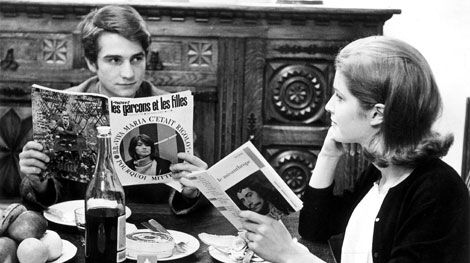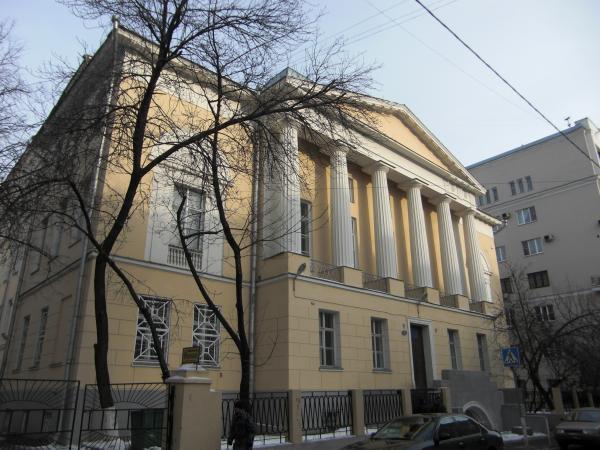This is the usual Friday dilemma of what I love more – the cool air-conditioned rooms of the city with the scent of cappuccino and intellectual conversations, or that kind of universal silence when you are alone in the evening with the stars to the sound of radio waves, and the brilliance of sunny lawns the next morning.
Every Friday evening I think with horror why we need this summer cottage and why go there, but on Sunday evening I am tormented by the question of how to make sure that I do not leave the country house, and I do not believe that some time after arrival I will again adapt to Moscow and I will forget about the dacha as a kind of some nightmare. During my stay at the dacha, I merge in such ecstasy with the inviolability of nature and with the quiet simple rules of life in an old log house that those intervals of time when for some reason I’m not there seem to be some kind of annoying and unforgivable mistake.
From the car window I see all these pictures, imbued with golden sunset light, so reminiscent of all the highways of our our European travels.
Here I am in the country.
As usual every step on the floor, every sound of a slammed door is thundering in all the house.
Unlike the times of my childhood, nowadays in the air you can sometimes hear the bell ringing of the restored old church, which inevitably immerses you in the timeless reality of a Russian village or county town.
Sometimes, through the thickness of air, one can hear the noise of a speeding bullet train in the Riga direction with cute neat white curtains with a blue pattern, which we sometimes watched while standing on the platform waiting for our regional train.
The slow soaring of the elastic brace head of a badminton shuttlecock against a dizzying picture of a bright blue sky with the outlines of pines is the eternal magic of this game. This is no less an eye-catcher picture than, for example, the intense search for mushroom caps hiding against the background of forest soil dotted with needles or covered with moss, search that is still continuing even after you close your eyes for the night.
The presence or absence of wind, with unpredictable frequency creating air currents is an uncontrollable factor, which may be so necessary if you are going to go on a field to start a kite, but at the same time it may create certain difficulties when you are trying on to hit the shuttlecock.
Late at night, the frogs’ croaking from the swamp was heard especially clearly in the quiet air … As a child, I was friends with a girl who knew everything about frogs, since her summer cottage was located near the pond in the outskirts. We built sandy cities together with her, and then we put frogs there, watching how they would try to find their way from these labyrinths to the pond so dear to their hearts, and in the process we were creating more and more new additional obstacles in their path. Preciously decorated dragonflies swirled over the pond, the contemplation of the flight path of which could drive one crazy, and I also opened up the world of water striders jumping on the pond surface …
In the forest, my young mentor told me the secret of the edibility of the friendly looking light green shamrocks of oxalis stricta, and from that time on I used to recognize happily these leaves as my good friends, from time to time checking them to taste to make sure that they were still all the same delightfully sour. And the sour forest strawberry was a degenerated wild brother of the garden strawberry.
I still remember the year when we once went to the forest for mushrooms and practically didn’t find them – our mushroom buddies always protected sacredly the secrets of the forest mycelium location – but as a consolation we managed to gather a lot of forest nuts, covered with a not yet hardened light green shell, which, after lying down for some time on the floor, turned into a hazelnut so familiar to us, which are sold in the vegetable departments of food stores ….. Needless to say, that all the following years, when we went to the forest for nuts, nut bushes disappointed us with their absolute and hopeless futility.
This forest surroundiing our summer cottage became for me a kind of the archetypal concept of “forest” in general and concealed in itself many secrets and even fears, the embodiment of which was, for example, the story “The Pantry of the Sun” by Mikhail Prishvin, in which the boy was almost dragged to the bottom by insidious quagmire of a forest swamp.
And what is the smell of freshly cut grass, invigorating the nostrils! Actually, the whole history of our long-term existence in the country side is a struggle with too quickly growing grass and a struggle for the availability of water.
Feeling touched by all descriptions of the garden, overgrown with weeds, ever read by me – the idiomatic expression “everything was overgrown by the past” was on the tip of my tongue – I found myself following obediently the recently read instruction from Voltaire’s “Candide” – “one need to cultivate his garden” … But then I felt my hands were apparently irrigated with a layer of sweat interspersed with the juice of overgrown weeds, and this, so to speak, “infernal mixture” attracted unkindly buzzing insects.
The habit of walks along the country side with admiration of the views revealed and examining at the plants along the way – this is a good and long-standing tradition of summer holidays. Marcel Proust devoted many pages of his book “Towards Swann” to describing such a pastime, and even this name of the book comes from such kind of walks.

Closing my eyelids before falling asleep, I trustfully surrender myself to the welcoming darkness of a room with a window opened to meet the freshness of the night air, shadows of foliage from the garden and echoes of distant trains, with tightly drawn curtains, which, I am sure, will save me from the annoying sunbeams of the coming morning …











